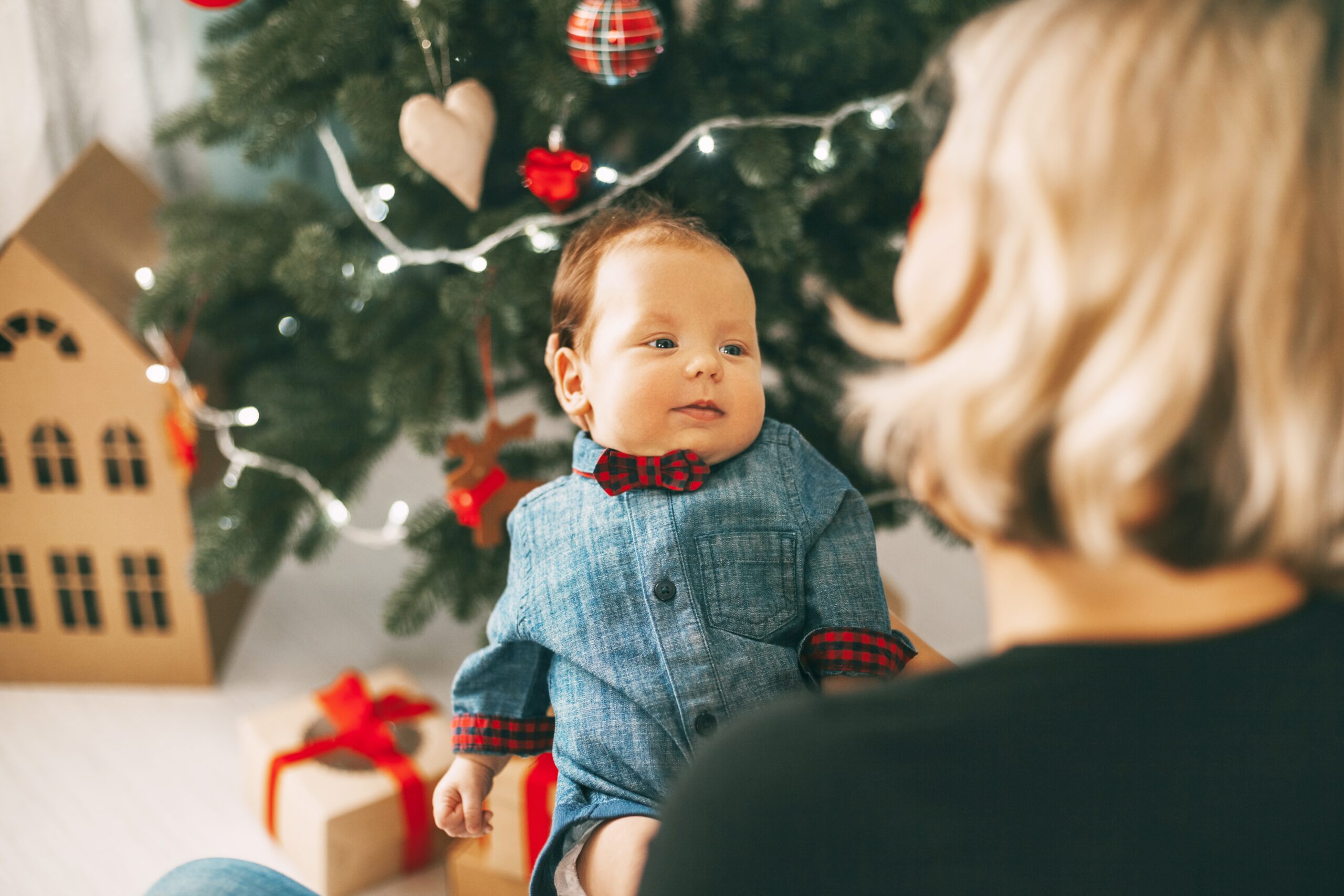The Christmas season is a magical time filled with festivities, family gatherings, and cherished moments. However, for new parents, it can also bring a unique set of challenges, especially when caring for a newborn. With the joy of the holidays comes the responsibility of keeping your little one healthy and safe. At BeeHome Pediatrics, Dr. Margie Diaz-Ochu understands that this time of year can be overwhelming, and is here to help guide you through the season with practical tips and personalized care.
As a parent of a newborn, it’s essential to stay mindful of the unique health needs that arise during this busy time of year. Here, we’ll discuss common concerns for newborns during the holiday season and provide helpful advice to keep your baby feeling their best.
Common Newborn Concerns During the Christmas Season
- Cold Weather and Sensitive Skin
The winter season can be harsh on your newborn’s delicate skin. Cold air, dry indoor heat, and frequent diaper changes can lead to dry patches, rashes, or chapped lips. To protect your baby’s skin, keep them moisturized with a gentle, fragrance-free lotion or petroleum jelly. Be sure to dress your newborn in layers, making it easier to adjust to temperature changes while avoiding bulky blankets that could pose a suffocation risk. - Exposure to Respiratory Illnesses
The Christmas season is a prime time for respiratory illnesses such as RSV (Respiratory Syncytial Virus), the flu, and the common cold. Newborns are especially vulnerable to these illnesses, and their immune systems are still developing. To keep your baby safe, limit their exposure to crowded places and large gatherings. Always encourage visitors to wash their hands thoroughly before holding your baby, and avoid passing your baby around to multiple people during the holiday season. - Stress and Overstimulation
The holiday season can be exciting, but it can also be overstimulating for both parents and babies. Bright lights, loud music, and the hustle and bustle of family gatherings can lead to sensory overload. It’s important to keep your newborn’s environment calm and quiet when possible. Try to create a soothing space for your baby to sleep and recharge, especially if you’re hosting guests or traveling to see family.
At-Home Tips for Newborn Care During the Holidays
- Create a Comfortable, Safe Environment
Ensure your home is warm but not too hot. A humidifier can help keep the air moist, which is especially helpful in dry winter conditions. If you’re heading out to family events, make sure your baby’s car seat is properly adjusted and they are warmly dressed, but not overheated. - Monitor Your Baby’s Health
As a parent, you’re always keeping a close eye on your baby’s health, but it’s easy to feel uncertain during the holiday season when doctors’ offices may be closed or harder to reach. BeeHome Pediatrics offers accessible care, allowing you to text or call Dr. Diaz-Ochu directly for any concerns you have about your baby’s health. You can even send photos of your baby’s symptoms for a quick assessment. - Breastfeeding and Bottle Feeding
Holiday travels or visiting family can disrupt your feeding schedule, but it’s important to maintain your baby’s routine as much as possible. If you’re breastfeeding, make time for feedings or express milk ahead of time. For bottle-fed babies, ensure that you have enough formula or milk prepared. Keeping your baby well-fed and hydrated is key to staying healthy during the holidays.
When to Seek Help: Signs of Illness
While it’s natural to worry about your baby during the holiday season, there are certain symptoms that should prompt you to seek professional care right away. Some signs to watch for include:
- Difficulty Breathing: If your baby is breathing rapidly or has labored breathing, especially while resting, this can be a sign of a respiratory infection such as RSV. If their skin turns blue around the lips or mouth, seek medical help immediately.
- Lethargy: If your baby is unusually tired, not feeding well, or difficult to wake, this can be a sign of illness.
- Fever: If your newborn develops a fever (especially over 100.4°F), contact Dr. Diaz-Ochu. Newborns are especially susceptible to infections, and a fever in the first few months of life warrants immediate attention.
- Persistent Coughing or Vomiting: If your baby is experiencing a persistent cough, especially if it’s making them struggle to breathe or causing vomiting, it may require medical attention.
Why Choose BeeHome Pediatrics This Holiday Season?
At BeeHome Pediatrics, we understand that the holiday season can be challenging, especially for new parents. One of the many benefits of our practice is the personalized care we provide. Dr. Diaz-Ochu is always just a phone call, text, or email away, ensuring you have access to professional guidance whenever you need it. If you’re unsure about any symptoms or changes in your baby’s health, you can send us a quick photo for an expert opinion within minutes.
We pride ourselves on providing accessible and compassionate care, so you can focus on enjoying the magic of the season with your little one—without the stress of wondering if you’re making the right decision for their health.
To learn more about how BeeHome Pediatrics can support your newborn care needs during the Christmas season, please contact Dr. Margie Diaz-Ochu at 435-513-PEDS or visit BeeHomePediatrics.com. We’re here to help you navigate the holiday season with confidence and peace of mind.

